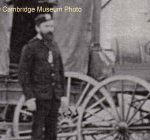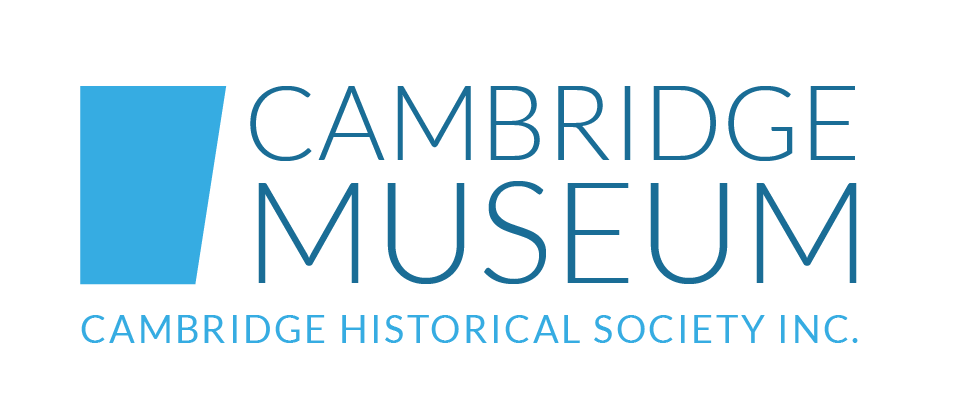Collections
Our Cambridge Collection has changing exhibitions about Cambridge. Much of our collection is in storage to ensure its preservation for future generations.
Cambridge Collections
Police: 1886 – 1930

The first European force policing the Cambridge area was the 3rd Regiment of the Waikato Militia under Colonel William Charles Lyon.
On 10 October 1867 the Armed Constabulary Act was passed and the Waikato Militia disbanded.
William Brennan became the permanent constable and his first arrest on 3 July 1876 was Te Huia “drunk and incapable on the Cambridge wharf.” Fined £1 and 3/- costs.
As Brennan settled in he dealt with numerous cases of drunk and disorderly, larceny, assault, absent without leave, disturbances, vagrancy, obscene language, furious riding and larrikinism. Harry Bowman had a charge of horse stealing dismissed, but for singing an obscene song in a public street (to wit) Duke Street Cambridge he was charged 50/- and 4/6 costs. The lock up was a busy place.
From 1877-1886 the NZ Constabulary Force had jurisdiction.
The new bill enabled the constabulary “to act as constables in and throughout the colony, for putting down rebellion, quelling disturbances, preserving the peace, preventing robberies and other felonies and apprehending offenders against the peace.”
In September 1880 Mathew Cooper stole a fruit pie and a pound of butter (value 3/6d) from the meat safe of John Robertson’s Boarding House and a plum cake (value 2/6d) from the Rev. William Willis. The Waikato Mail records – “When our worthy sergeant of the police, in pursuance of his duty, called at a certain house in this town, a little girl met him at the door, and gazing earnestly at his face, asked,’ are you the man that stole the cake; did you eat the whole of it?’ Fancy, the indignation of the worthy sergeant, it is said that his very heels blushed with shame at the unjust imputation.” Cooper was sentenced to six months imprisonment for each offence.
In April 1881 a riot occurred during the Native Land Court hearings and the police got “rather roughly handled”. Then Wiremu Te Riu did not respond to a summons – but later (in June 1883) when visiting Cambridge “he was only a few minutes in town before he was pounced upon by the vigilant Brennan.”
By mid 1884 a full troop of N Z Constabulary Force was no longer required in Cambridge and all movable buildings and most of the personnel were transferred to Kihikihi. Constable Brennan who had served in Cambridge since June 1876, carried on with policing duties, charging youngsters Charles, Hugh and David who “did unlawfully ride their horses furiously in Duke and Victoria Street”, and were each fined 5/- and 11/- costs.
18 May 1886 a Police Force Bill and a Defence Bill were introduced to Parliament.
Both were passed and the NZ Police Force came into being on 1 September 1886.
The first constable in charge of Cambridge was William Brennan.
His uniform consisted of a blue cloth cap with peak and band of black braid. Loose blue cloth jumper with uniform buttons. Blue cloth trousers, strong lace-up watertight boots, a great coat, a waterproof coat and white gloves.
| Ambrose William Donnellan Brennan | |
| To Cambridge | 29 June 1876 |
| Left Cambridge | November 1897 |
| Timothy Cahill No. 286 | |
| To Cambridge | 27 November 1897 |
| Left Cambridge | 23 August 1899 |
| Alexander McGilp No. 201 | |
| To Cambridge | 19 August 1899 |
| Left Cambridge | 16 October 1903 |
| John McNamara No 790 | |
| To Cambridge | 19 October 1903 |
| Left Cambridge | 13 May 1911 |
| Stephen Garvey No. 3457 | |
| To Cambridge | 12 August 1911 |
| Left Cambridge | 15 May 1915 |
| Phillip John McCarthy No. 891 | |
| To Cambridge | 30 May 1911 |
| Left Cambridge | 12 August 1915 |
| James Francis Cleary No. 1217 | |
| To Cambridge | 11 February 1915 |
| From Cambridge | 1 February 1928 |
| Ernest Francis Jones No. 1917 | |
| To Cambridge | 1 February 1928 |
| Left Cambridge | 22 December 1932 |
| Constable William Israel Trask No. 1966 | |
| To Cambridge | 26 August 1930 |
| Left Cambridge | 22 March 1933 |
| Alfred Doel No. 1972 | |
| To Cambridge | 21 December 1932 |
| Left Cambridge | 19 March 1935 |
| Charles Henry Maisey No. 1833 | |
| To Cambridge | 19 March 1935 |
| Left Cambridge | 20 April 1944 |
